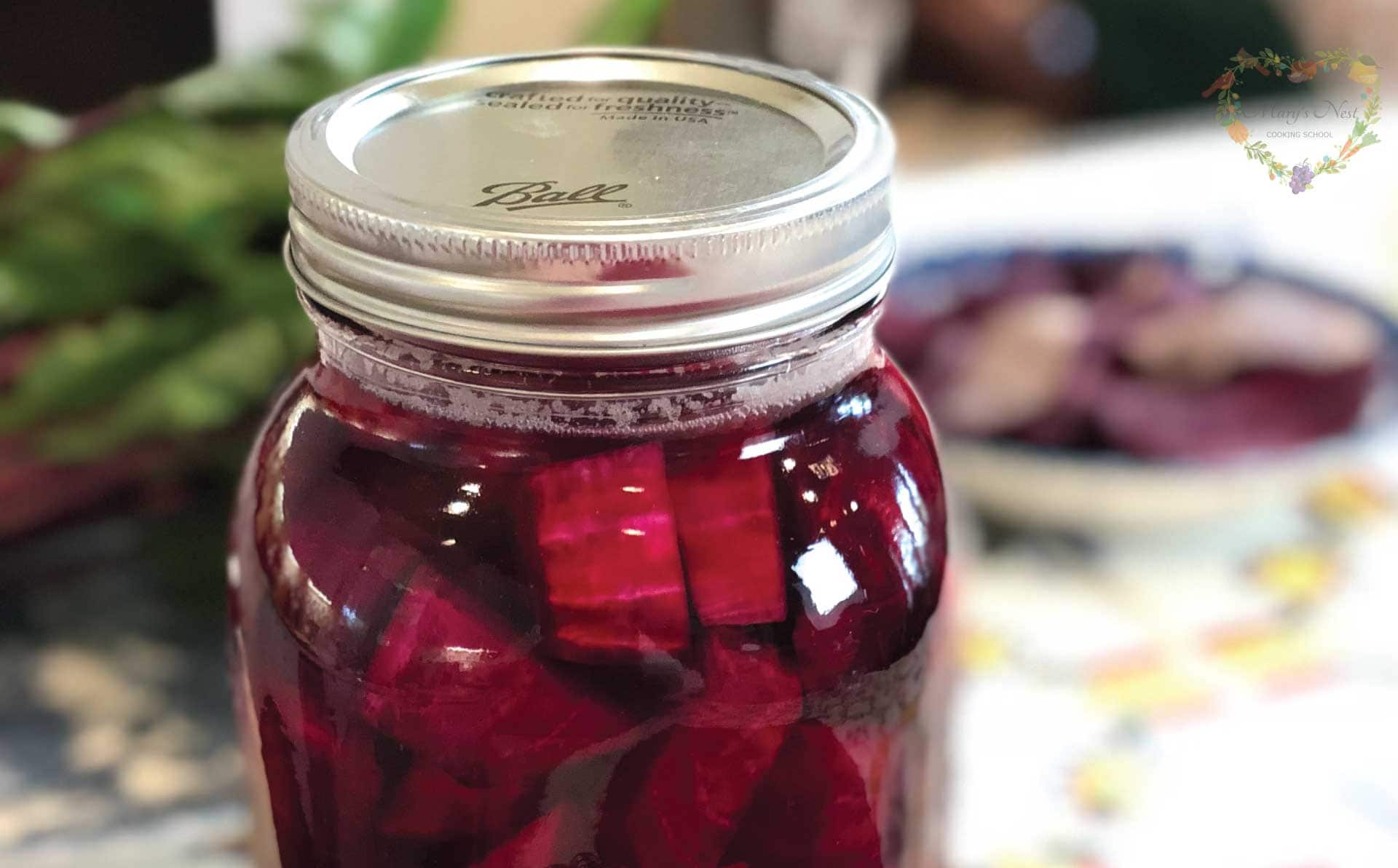How to Make Beet Kvass
5.0
(3)
Your folders
Your folders
Prep Time: 10 minutes
Total: 10 minutes
Servings: 32

Ingredients
Export 1 ingredients for grocery delivery
Instructions
Step 1
Cut up beets into 1-inch cubes.
Step 2
Place beets into a half-gallon jar that has a lid.
Step 3
Add salt.
Step 4
Fill jar with water, leaving approximately 1 inch of head space.
Step 5
Put lid on jar, finger tight.
Step 6
Place jar in a warm, undisturbed place, such as in a kitchen counter corner, on top of a refrigerator, or in a cabinet or pantry.
Step 7
After a few days, check the jar to see if bubbles are beginning to appear. In warmer months, bubbles will appear sooner than in cooler months. If you see bubbles, loosen the jar lid to allow some of the carbon dioxide to escape. Retighten the jar lid.
Step 8
Continue to check the jar each day. Loosen the jar lid to release carbon dioxide and retighten lid. After approximately 7 days, use a clean spoon to taste the Beet Kvass. If it is to your liking, strain out the beets from the liquid. This liquid is your Beet Kvass. Decant the Beet Kvass into a clean bottle, reserving 1/4 cup. Place a cap on the bottle and refrigerate the Beet Kvass.
Step 9
Place the beets back into the half-gallon jar along with the reserved 1/4 cup of Beet Kvass and 1 tablespoon of coarse ground sea salt. Repeat Steps 4 thru 8, but do not reserve 1/4 cup of the Beet Kvass unless you have a new batch of beets. The beets can only be used to make 2 batches of Beet Kvass.
Step 10
Do not discard the beets used to make the first 2 batches of Beet Kvass. They are rich in probiotics now, and you can now add them to a salad.